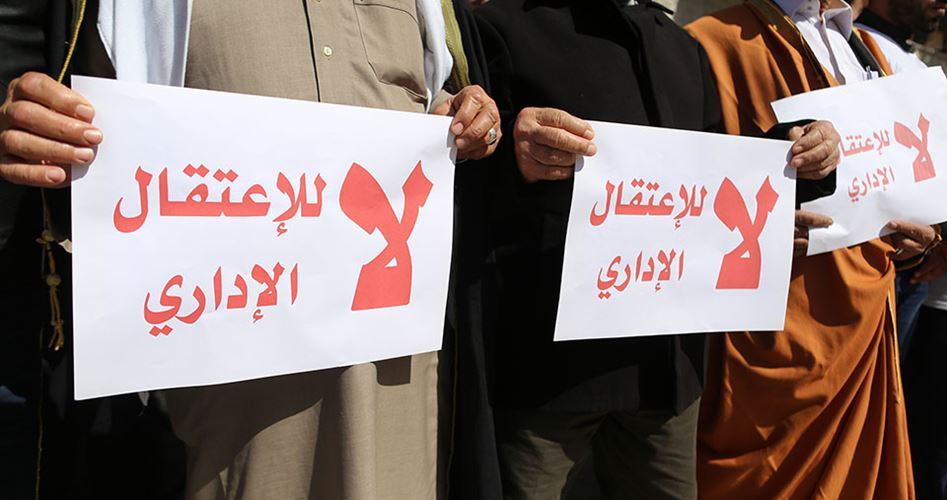As five Palestinian prisoners continue their hunger strike in protest against their administrative detention Israel’s administrative detention policy came once again under spotlight.
Israel’s widely condemned policy of administrative detention allows the detention of Palestinians without charge or trial for renewable intervals usually ranging between three and six months based on undisclosed evidence that even a detainee’s lawyer is barred from viewing.
Five Palestinian prisoners in Israeli detention currently remain on hunger strike in protest against their unfair and indefinite administrative detention without charge or trial.
The prisoner Kayed Fasfous is the longest one on hunger strike as he has been on hunger strike for 124 days in protest at his detention without charge or trial followed by Alaa Aaraj (100 days) Hesham Abu Hawwash (91 days) Ayyad Hureimi (54 days) and Lo’ai Al-Ashqar (36 days days).
Last week UN experts expressed grave fear for the lives of the hunger strikers and called on Israel to either release or charge the prisoners and to completely end its unlawful practice of administrative detention.
“In violation of international law Israel continues to use administrative detention to imprison more than 500 Palestinians — including six children — without charges without trials without convictions all based on classified secret information that the detainees have no access to” the experts said.
“They have no recourse to challenging these undisclosed allegations and they do not know when or if they are going to be released.”
Currently Israel is holding over 450 Palestinians in administrative detention deemed illegal by international law most of them former prisoners who spent years in prison for their resistance of the Israeli occupation.
Over the years Israel has placed thousands of Palestinians in administrative detention for prolonged periods of time without trying them without informing them of the charges against them and without allowing them or their lawyers to examine the evidence.















